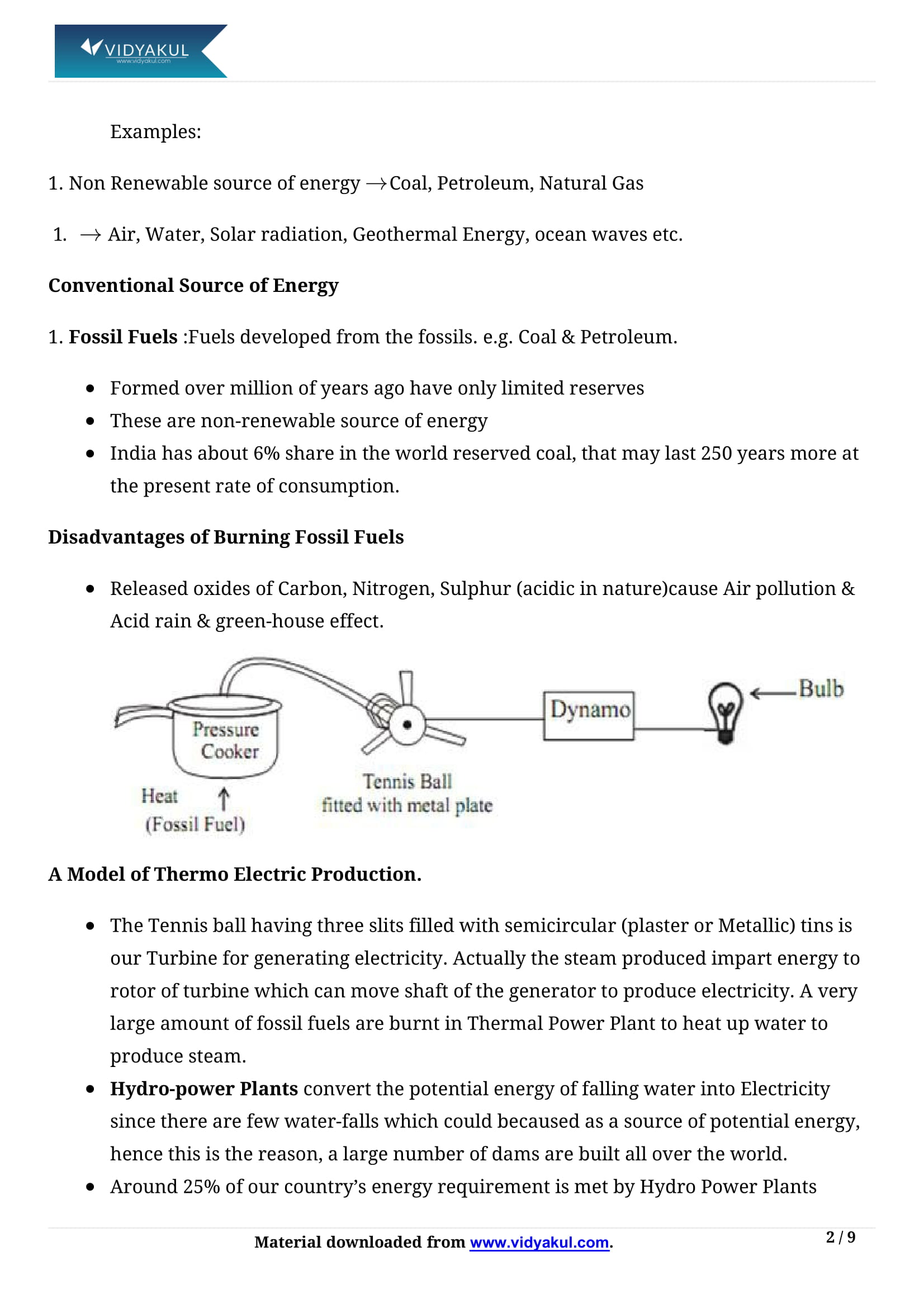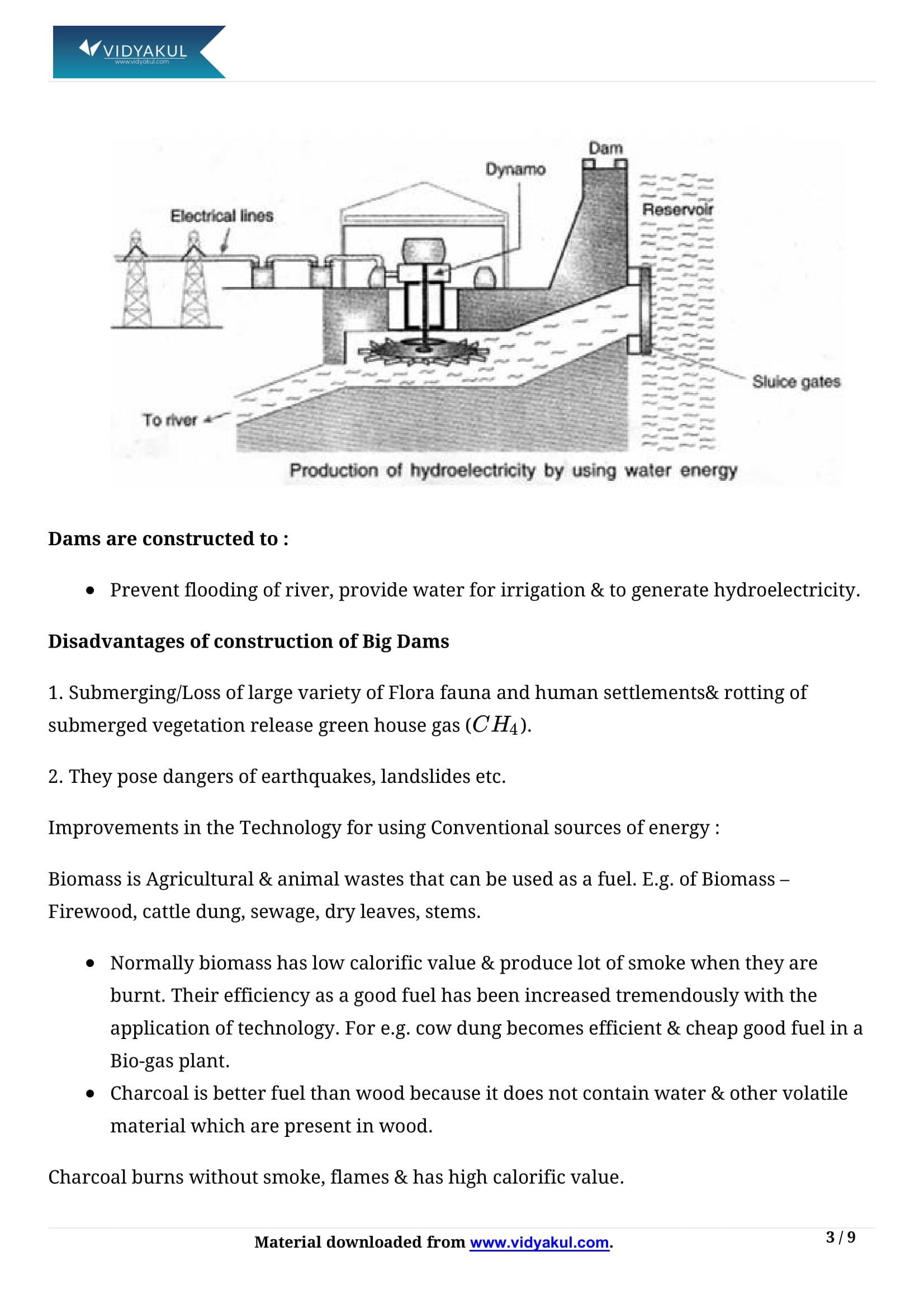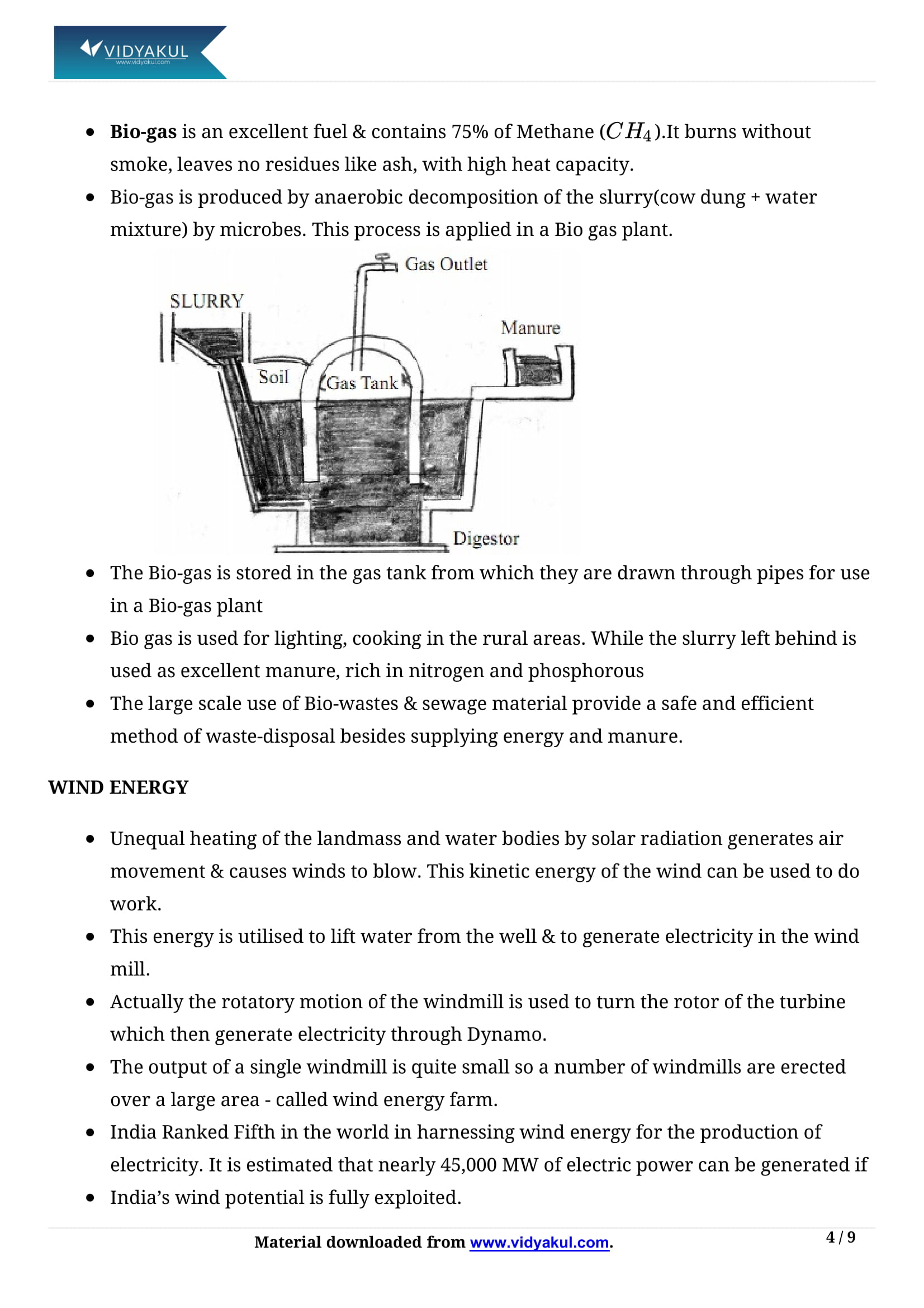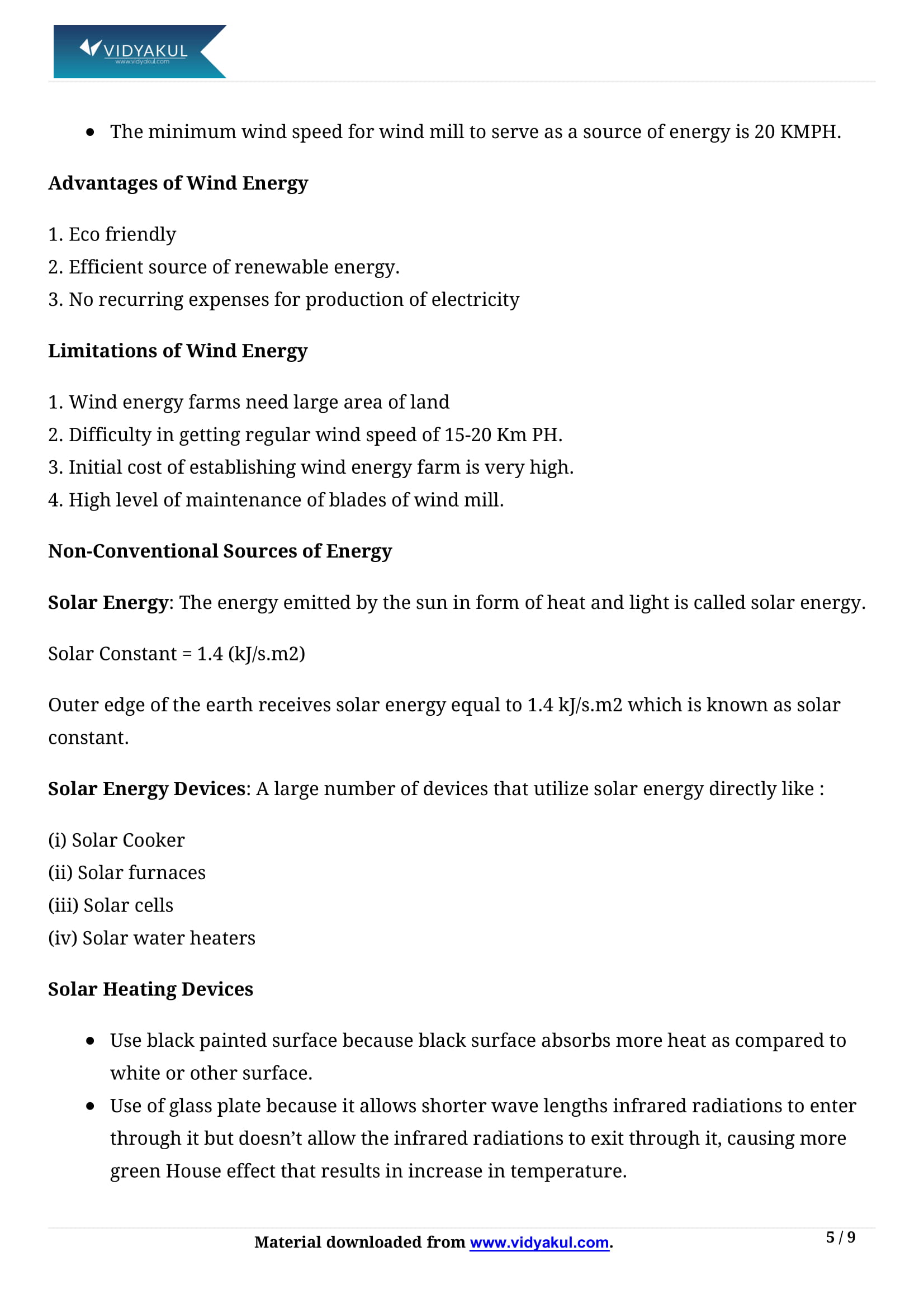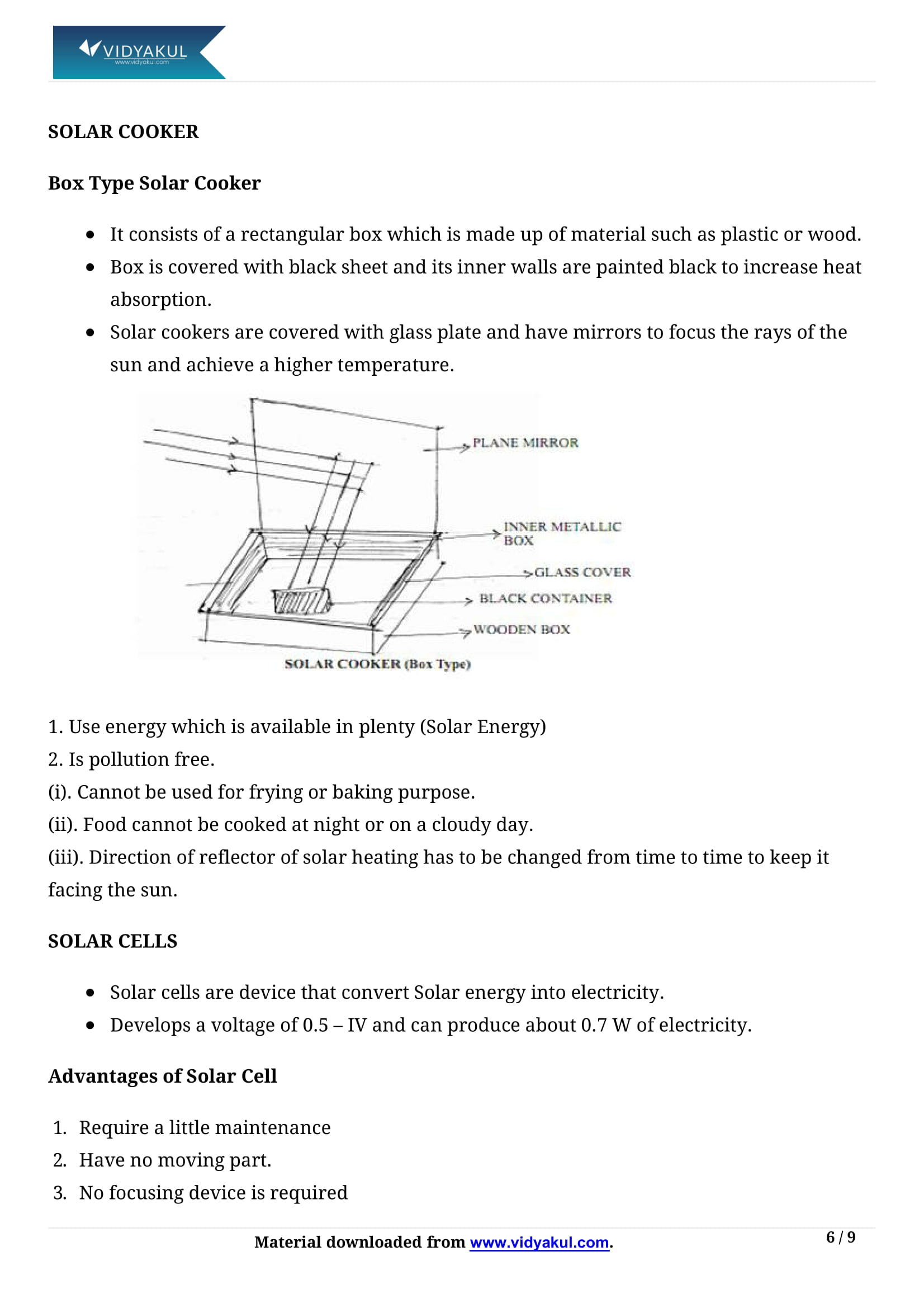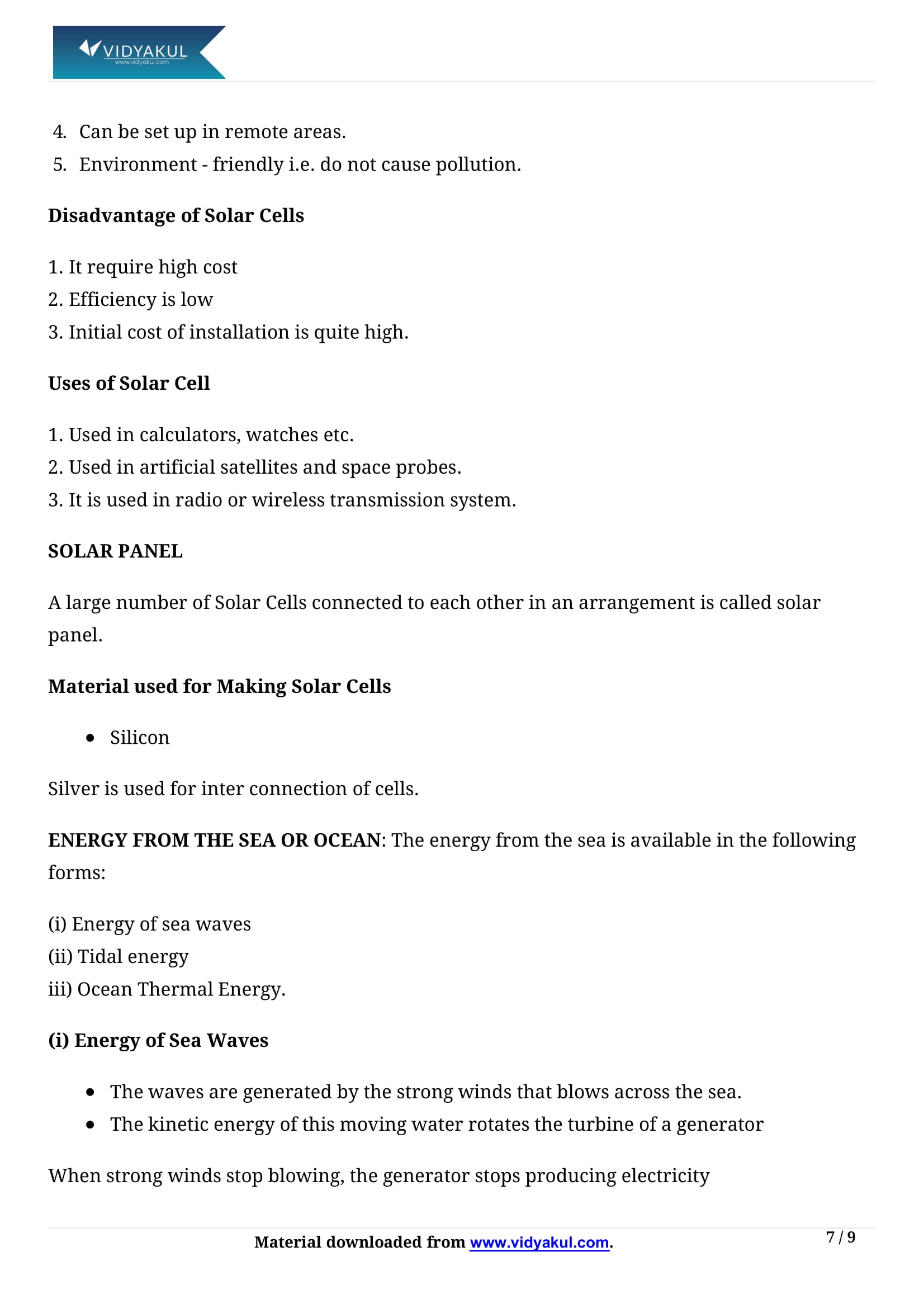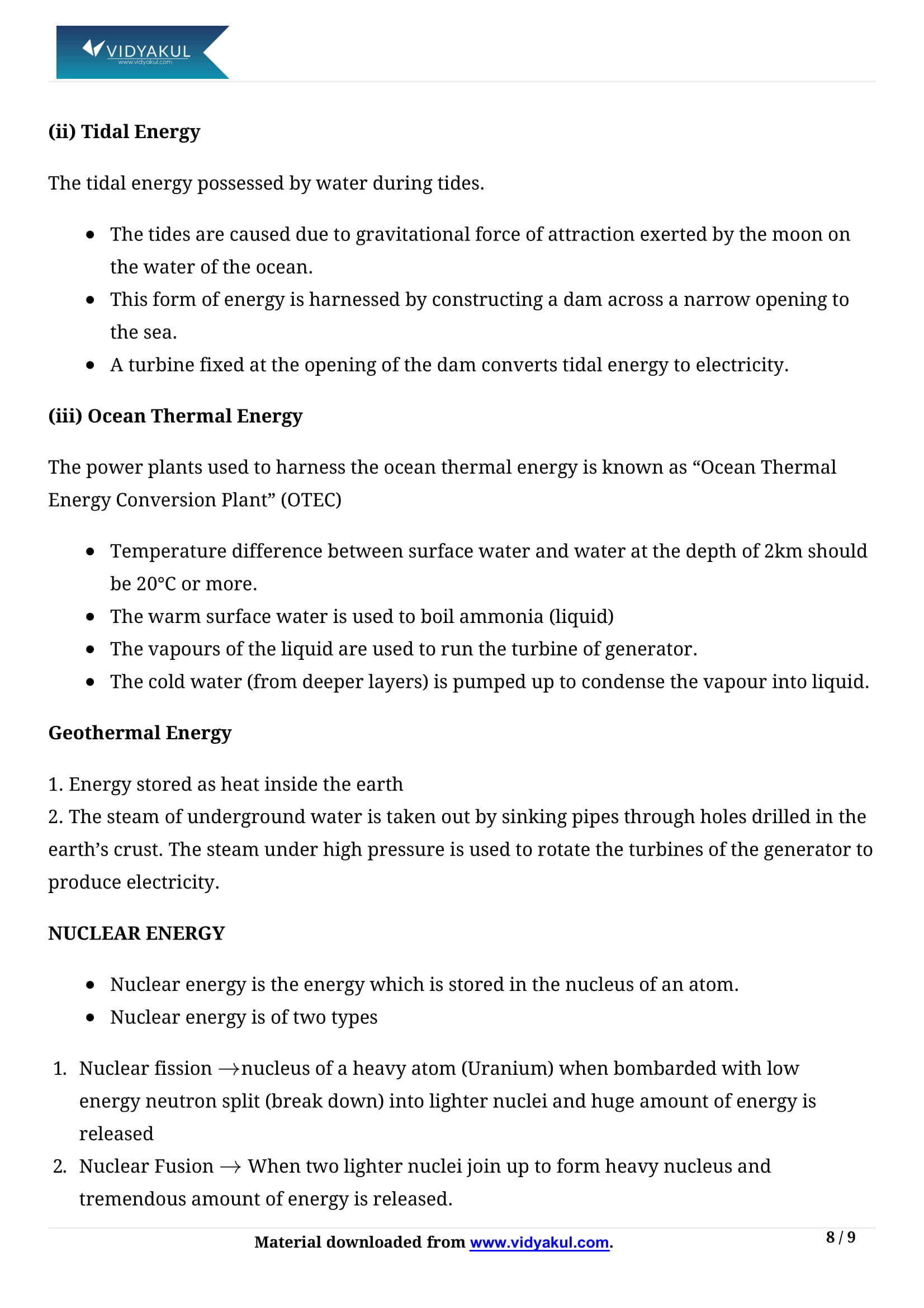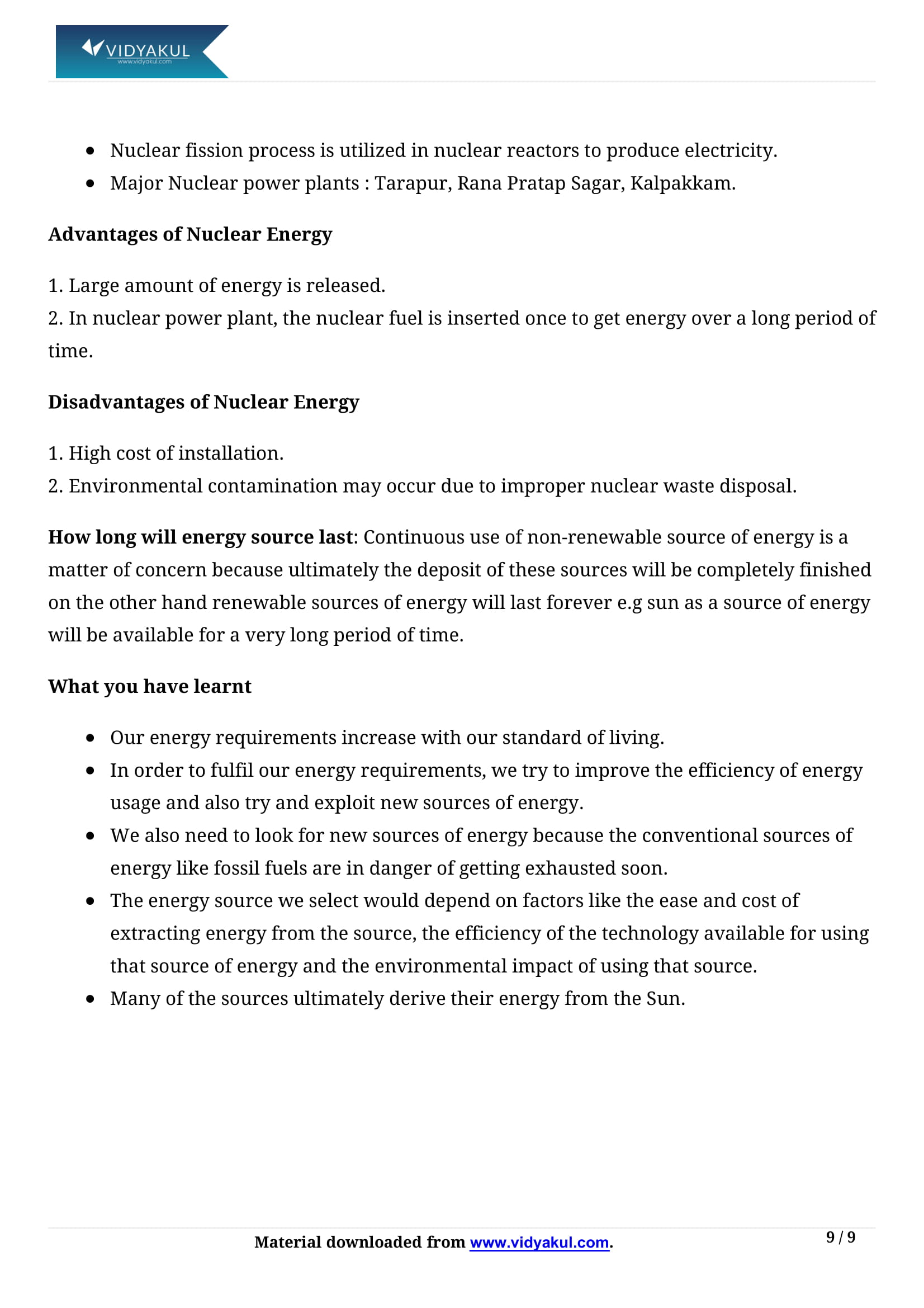Sources of Energy Class 10 Notes

Chapter 14 Sources of Energy
Grade 10 Science Chapter 14 “Energy sources are an important topic in the CBSE Grade 10 exam. A thorough understanding of this chapter will increase your chances of passing the exam. So, with well-designed NCERT notes for Science Chapter 14 class 10, you can not only do well on the exam, but also build a solid foundation for understanding complex topics in senior years.
Chapter 14 of Vidyakul's NCERT notes for Class 10 Science contains the most complete, reliable and up-to-date information from experienced educators, compiled according to the latest CBSE scoring system and sample exam guidelines. Students can learn more about energy sources by reading the article.
CBSE CLASS 10th SCIENCE CH-14
Points to Remember
Given below are the important points for NCERT notes on Class 10 Science Chapter 14:
Renewable sources of energy are those which can be generated by us or which are constantly being generated by natural processes or whose supply is unlimited.
Sources of energy that we have started using in new ways or only in recent times are called non-conventional or alternate sources of energy.
Fuels that originated from the remains of dead plants and animals are called fossil fuels.
Free and renewable source of energy, non-polluting, cost of electricity generation is lower than that of thermal and nuclear plants.
Wind energy requires regular wind, not a dependable source and also wind farms are costly.
For more such important points, students can refer to Vidyakul.
Topics and Sub-topics
NCERT notes for Grade 10 Science Chapter 14's overarching topics will help students prepare for the exam. It is recommended that students complete all sections and subtopics. The "Energy Sources" chapter is easy to enter. Once the concepts are clear, students can carefully prepare for the exam. Vidyakul offers a variety of questions for CBSE Class 10 Science Chapter 14. Also, students can get really good grades if they learn the concepts easily.
Few Important Questions
What is a ‘Conventional resource’?
Conventional sources of energy can be described as non-renewable sources of energy which have been used since a long time.
What is fossil fuel?
A fossil fuel is a hydrocarbon-containing material formed underground from the remains of dead plants and animals that humans extract and burn to release energy for use.
What are the types of fossil fuels?
1. Petroleum 2. Coal 3. Natural gas 4. Orimulsion
Renewable sources of energy are those which can be generated by us or which are constantly being generated by natural processes or whose supply is unlimited.
Sources of energy that we have started using in new ways or only in recent times are called non-conventional or alternate sources of energy.
Fuels that originated from the remains of dead plants and animals are called fossil fuels.
Free and renewable source of energy, non-polluting, cost of electricity generation is lower than that of thermal and nuclear plants.
Wind energy requires regular wind, not a dependable source and also wind farms are costly.
What is a ‘Conventional resource’?
What is fossil fuel?
What are the types of fossil fuels?
Learn more about in Sources of Energy Class 10 Notes pdf.
Download Latest Class 10 Sample Papers 2019 for Board Exams
- CBSE Class 10 Sample Papers 2019 PDF
- CBSE Class 10 Maths Sample Papers 2019 PDF
- CBSE Class 10 Science Sample Papers 2019 PDF
- CBSE Class 10 English Sample Papers 2019 PDF
- CBSE Class 10 Hindi Sample Paper 2019 PDF
- CBSE Class 10 Social Studies Sample Papers 2019 PDF
Download this solution for FREE Download this PDF

